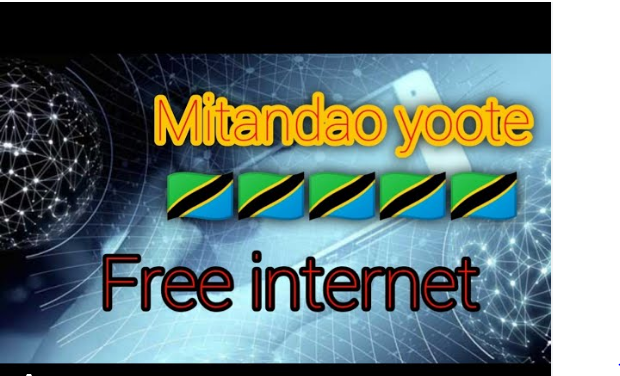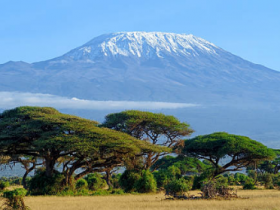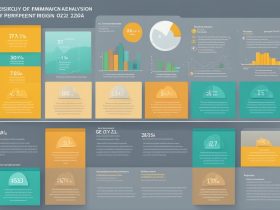Free internet in Tanzania is a concept that has been gaining momentum in recent years. With the increasing need for internet connectivity, especially in developing countries like Tanzania, the idea of providing free internet to the masses has become a popular topic of discussion. The Tanzanian government has been working towards making this a reality, and there are several initiatives in place to help achieve this goal.
The concept of free internet is simple – it is the provision of internet access to users without any cost. This means that users can browse the internet, stream videos, and use social media platforms without having to pay for data. The idea behind free internet is to bridge the digital divide and provide internet access to those who cannot afford it. This is especially important in Tanzania, where internet penetration is low, and a significant portion of the population lives below the poverty line.
Key Takeaways
- Free internet is a concept that aims to provide internet access to users without any cost.
- The Tanzanian government has been working towards making free internet a reality.
- The provision of free internet will help bridge the digital divide and provide internet access to those who cannot afford it.

The Concept of Free Internet
Definition of Free Internet
Free internet refers to the provision of internet services without any cost to the user. In other words, it is a service that allows users to access the internet without having to pay for it. The concept of free internet is gaining popularity in many parts of the world, including Tanzania, where it is seen as a way to promote digital inclusion and bridge the digital divide.
Free internet can be provided in various ways, including through public Wi-Fi hotspots, community networks, and partnerships between governments and private companies. The availability of free internet services has the potential to increase access to information, education, and economic opportunities for people who may not be able to afford traditional internet services.
Global Overview
The concept of free internet is not new and has been implemented in various forms in different parts of the world. For instance, in India, the government has launched a program called Digital India, which aims to provide free internet services to rural areas through public Wi-Fi hotspots. Similarly, in Kenya, the government has partnered with private companies to provide free Wi-Fi services in public spaces such as parks and libraries.
In the United States, there are also initiatives to provide free internet services to low-income households. For example, the Federal Communications Commission (FCC) has a program called Lifeline, which provides discounted internet and phone services to eligible households.
Overall, the concept of free internet is seen as a way to promote digital inclusion and bridge the digital divide. However, there are also concerns about the sustainability of free internet services and the potential for them to be used for nefarious purposes such as spreading misinformation and propaganda. As such, it is important to strike a balance between providing free internet access and ensuring that it is safe and secure for users.
Internet Landscape in Tanzania
Tanzania has made significant progress in improving access to the internet in recent years. According to a report by DataReportal, Tanzania had 15.60 million internet users in January 2022, representing a 2.9 percent increase from the previous year. The report estimates that the number of internet users in Tanzania will continue to grow, reaching 21.00 million by January 2023.
Current Internet Penetration
Tanzania’s internet penetration rate stood at 25.0 percent of the total population at the start of 2022, up from 23.1 percent in the previous year. This means that approximately one in four Tanzanians has access to the internet. While this figure is still relatively low, it represents a significant improvement from just a few years ago.
Internet Service Providers
There are several internet service providers (ISPs) operating in Tanzania, including Vodacom Tanzania, Airtel Tanzania, and Tigo Tanzania. These companies offer a range of internet packages, including mobile broadband and fixed-line internet services. In addition, there are several smaller ISPs that provide internet services in specific regions or cities.
Vodacom Tanzania is currently the largest ISP in Tanzania, with a market share of approximately 32 percent. The company offers a range of mobile broadband packages, including daily, weekly, and monthly options. Airtel Tanzania is the second-largest ISP in the country, with a market share of approximately 23 percent. The company also offers a range of mobile broadband packages, as well as fixed-line internet services in some areas.
Tigo Tanzania is the third-largest ISP in Tanzania, with a market share of approximately 19 percent. The company offers a range of mobile broadband packages, as well as fixed-line internet services in some areas. Other notable ISPs operating in Tanzania include Halotel, Zantel, and Smile Communications.
Overall, while Tanzania’s internet landscape still has room for improvement, the country has made significant progress in recent years. With the continued growth of the internet user base and the expansion of internet infrastructure, it is likely that access to the internet will continue to improve in Tanzania in the coming years.
The Journey Towards Free Internet
In Tanzania, the journey towards free internet has been a collaborative effort between the government, non-governmental organizations, and the private sector. Each has played a unique role in making internet access more affordable and accessible to the citizens.
Government Policies
The Tanzanian government has been actively involved in promoting free internet access to its citizens. In 2016, the government abolished Value Added Tax (VAT) on smartphones and other internet-enabled devices, making them more affordable to the masses. Additionally, the government has been investing in infrastructure development to expand internet coverage to remote areas. In 2018, the government launched the National ICT Broadband Backbone (NICTBB) project, which aims to connect all government institutions, schools, and health centers to high-speed internet.
Role of Non-Governmental Organizations
Non-governmental organizations (NGOs) have also contributed significantly to the promotion of free internet in Tanzania. For instance, the Tanzania Communications Regulatory Authority (TCRA) partnered with the World Bank to launch the Rural Communications Development Fund (RCDF) in 2003. The fund provides subsidies to telecommunication companies to expand their networks to underserved areas, making internet access more affordable to rural communities.
Private Sector Initiatives
The private sector has also been actively involved in promoting free internet access to Tanzanians. Telecommunication companies have been offering affordable internet packages to their customers, making internet access more accessible to low-income earners. For instance, Tigo Tanzania introduced the Tigo Free Facebook service that allows customers to access Facebook for free without using their data bundles. Vodacom Tanzania also launched the Vodacom Free Internet service, which provides free access to select websites.
In conclusion, the journey towards free internet in Tanzania has been a collaborative effort between the government, non-governmental organizations, and the private sector. The government has been investing in infrastructure development, NGOs have been providing subsidies to telecommunication companies, and the private sector has been offering affordable internet packages to their customers. This has made internet access more affordable and accessible to the masses, promoting digital inclusion in Tanzania.
Challenges and Solutions
Infrastructure
One of the major challenges facing the proliferation of free internet in Tanzania is the lack of adequate infrastructure. The country still has a long way to go in terms of building the necessary infrastructure to support a reliable and fast internet connection. According to a report by Zaina Foundation, the high cost of internet bundles, slower network, and bundles that do not last as long as expected have seen Tanzanians struggle to access the internet.
To address this challenge, the Tanzanian government needs to invest more in building the necessary infrastructure, such as laying down fiber optic cables and improving the existing network infrastructure. This will not only improve the speed and reliability of the internet but also make it more affordable for people to access.
Digital Literacy
Another challenge to free internet in Tanzania is the lack of digital literacy among the population. Many Tanzanians do not have the necessary skills and knowledge to make the most of the internet. This is especially true for people living in rural areas, where access to the internet is limited.
To address this challenge, the government and other stakeholders need to invest in digital literacy programs that will equip people with the necessary skills and knowledge to use the internet effectively. This will not only improve access to information but also promote innovation and entrepreneurship.
Data Privacy and Security
The issue of data privacy and security is also a major concern when it comes to free internet in Tanzania. With the increasing use of the internet, there is a growing need to protect people’s personal information from cybercriminals and other malicious actors.
To address this challenge, the government needs to put in place laws and regulations that will protect people’s personal information. This includes ensuring that service providers have adequate security measures in place to protect users’ data. Additionally, people need to be educated on how to protect their personal information online, such as using strong passwords and avoiding sharing sensitive information on public networks.
Overall, while there are several challenges to free internet in Tanzania, these challenges can be addressed through a combination of government investment, digital literacy programs, and data privacy and security measures. By addressing these challenges, Tanzania can unlock the full potential of the internet and promote economic growth and development.
Future Prospects
Technological Advancements
Tanzania has made significant progress in the past few years in terms of internet penetration and technological advancements. With the implementation of the National ICT Policy in 2003, the country has been able to attract foreign investment in the ICT sector, which has led to the establishment of several technology hubs and incubators. These hubs have played a crucial role in fostering innovation and promoting the development of new technologies.
Furthermore, the government has taken steps to improve internet connectivity in the country, such as the construction of the National ICT Broadband Backbone (NICTBB) and the introduction of 4G technology. These initiatives have helped to increase internet access in the country, particularly in rural areas, where access was previously limited.
Impact on Economy and Society
The free internet initiative in Tanzania has the potential to boost the country’s economy and improve the lives of its citizens. With increased access to the internet, businesses can expand their reach and tap into new markets, while individuals can access online education and job opportunities. In addition, the internet can be used to improve healthcare services, as patients can access medical information and connect with healthcare providers remotely.
Moreover, the internet can play a vital role in promoting transparency and accountability in government. With the availability of free and open internet, citizens can easily access information about government policies and decisions, and hold their leaders accountable for their actions.
In conclusion, the free internet initiative in Tanzania has the potential to bring about significant positive changes in the country. However, it is important to ensure that the internet remains free and open, and that the government continues to invest in technological advancements to improve internet connectivity in the country.
Frequently Asked Questions
How can I access free internet in Tanzania?
There are several ways to access free internet in Tanzania, including using VPNs, free data promotions from mobile network operators, and public Wi-Fi hotspots. However, it’s important to note that some of these methods may be unreliable or come with certain limitations.
What are some Tigo free internet tricks?
One popular Tigo free internet trick involves using a VPN such as AnonyTun or Slow DNS to bypass Tigo’s data restrictions. However, it’s important to note that using VPNs for free internet may be against Tigo’s terms of service and could result in account suspension or termination.
Is it legal to use VPN for free internet in Tanzania?
While using VPNs is not illegal in Tanzania, using them for free internet may be against the terms of service of some mobile network operators. It’s important to read the terms of service carefully before using a VPN for free internet to avoid any potential legal or financial consequences.
What are some Halotel free internet VPN options?
Halotel users can access free internet by using VPNs such as AnonyTun or Slow DNS to bypass Halotel’s data restrictions. However, it’s important to note that using VPNs for free internet may be against Halotel’s terms of service and could result in account suspension or termination.
What are some Vodacom free internet VPN options?
Vodacom users can access free internet by using VPNs such as AnonyTun or Slow DNS to bypass Vodacom’s data restrictions. However, it’s important to note that using VPNs for free internet may be against Vodacom’s terms of service and could result in account suspension or termination.
Which VPN providers offer 10GB of free data?
Some VPN providers that offer 10GB of free data include Windscribe, ProtonVPN, and Hide.me. However, it’s important to note that these free plans may come with certain limitations or restrictions, such as slower speeds or limited server locations.
Also read:









Leave a Reply
View Comments